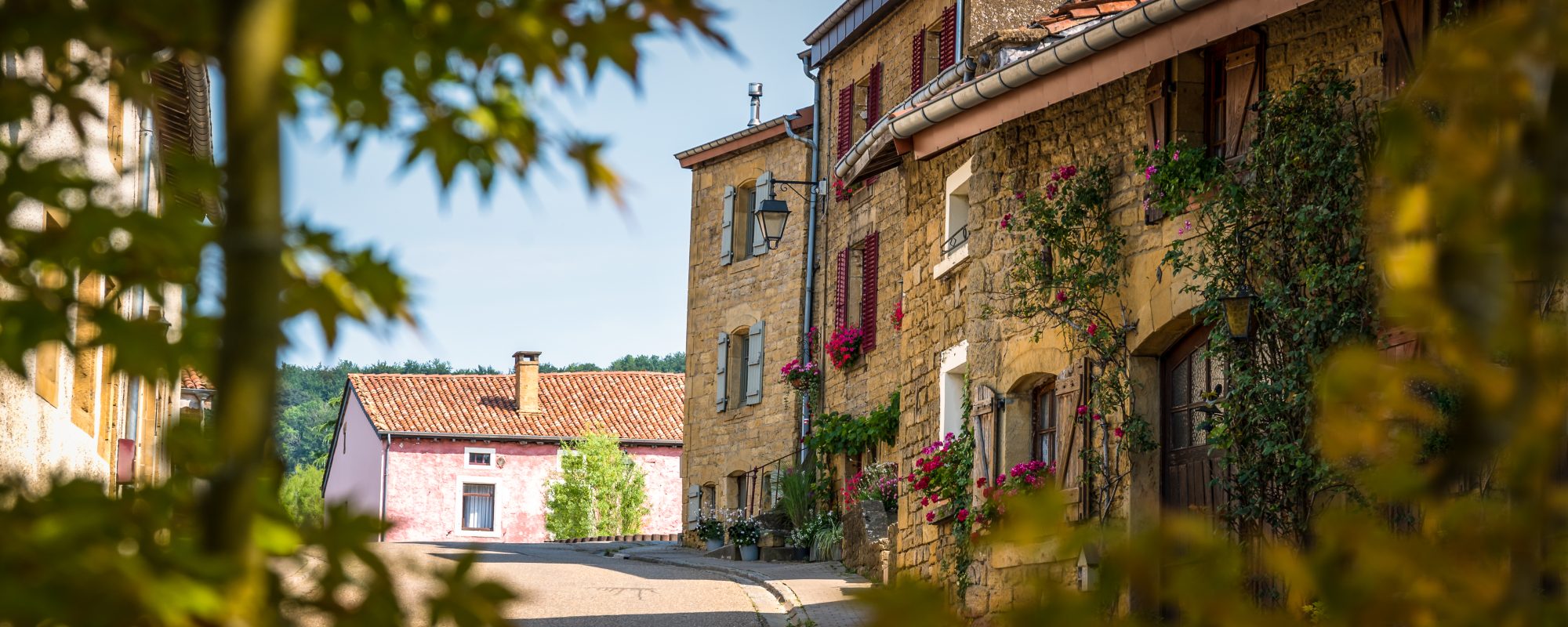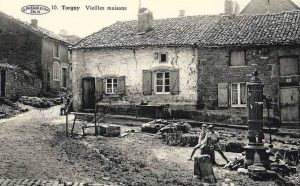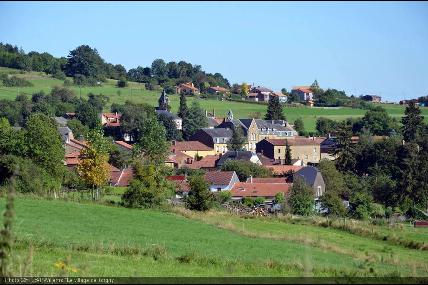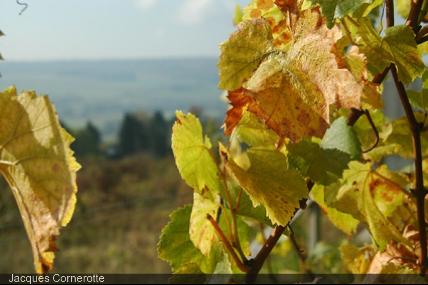Torgny,Provence with accents of the Lorraine region
Nicknamed 'The Belgian Provence', Torgny delights with its golden façades and red-tiled roofs. Bathed in a mild climate, the nonchalant vine gives southern accents to our aperitifs.

Nicknamed 'The Belgian Provence', Torgny delights with its golden façades and red-tiled roofs. Bathed in a mild climate, the nonchalant vine gives southern accents to our aperitifs.
|

Torgny lives in a proven microclimate. A small southern village of the Lorraine region, leaning against a hillside, is protected from the northern breezes by the forest massif that borders it. The result is one of the mildest climates allowing the cultivation of vines today: “Le Poirier du Loup“, “Les Fouchères” and “L’épinette” are three vineyards whose production is directly inspired by the south. This south never ceases to overflow from the locals’ hearts and sings in the colours of the village houses. The stone buildings have warm colours, and the roofs have red Roman tiles.
As you walk down the sloping streets that converge on the Chiers, you first come across a small listed heritage: a religious niche, a washhouse and two traditional farms. Next, the Raymond Mayné nature reserve, one of the oldest in Belgium, comes into view. This ancient quarry is home to a wide variety of flora and fauna. From here, there are beautiful views of the surrounding French and Belgian landscapes. Every year in July, “La Foire Artisanale de Torgny” (artisanal fair) brings together artists and craftsmen from the region to discover the flavours of the land.
Maison du Tourisme de Gaume
Rue du Moulin, 35
6740 Etalle
Tél. : +32 (0)63/ 39 31 00
Site web
Syndicat d’Initiative « Le Méridional »
Place Albert Paul, 6
6767 Torgny
Tél. : + 32 (0)63/ 57 83 81
Site web
Parc Naturel De Gaume
Rue Camille Joset, 1
6730 Rossignol
Tél. : + 32 (0)63/ 45 71 26
Site web

Torgny is the southernmost village in Belgium, and its Provençal atmosphere is boosted by the vineyards, the red-tiled roofs of...

Le vignoble "Le Poirier du Loup" s'étend sur le versant sud de Torgny, le joyau de la Gaume. Actuellement, presque...
The association Les Plus Beaux Villages de Wallonie (The Most Beautiful Villages of Wallonia) oversees a network of 32 villages, bearers of a strong territorial identity and reflecting traditional architecture. It is committed to promoting the rural, cultural and natural heritage of Wallonia and is a part of the development of local and responsible tourism.
More information